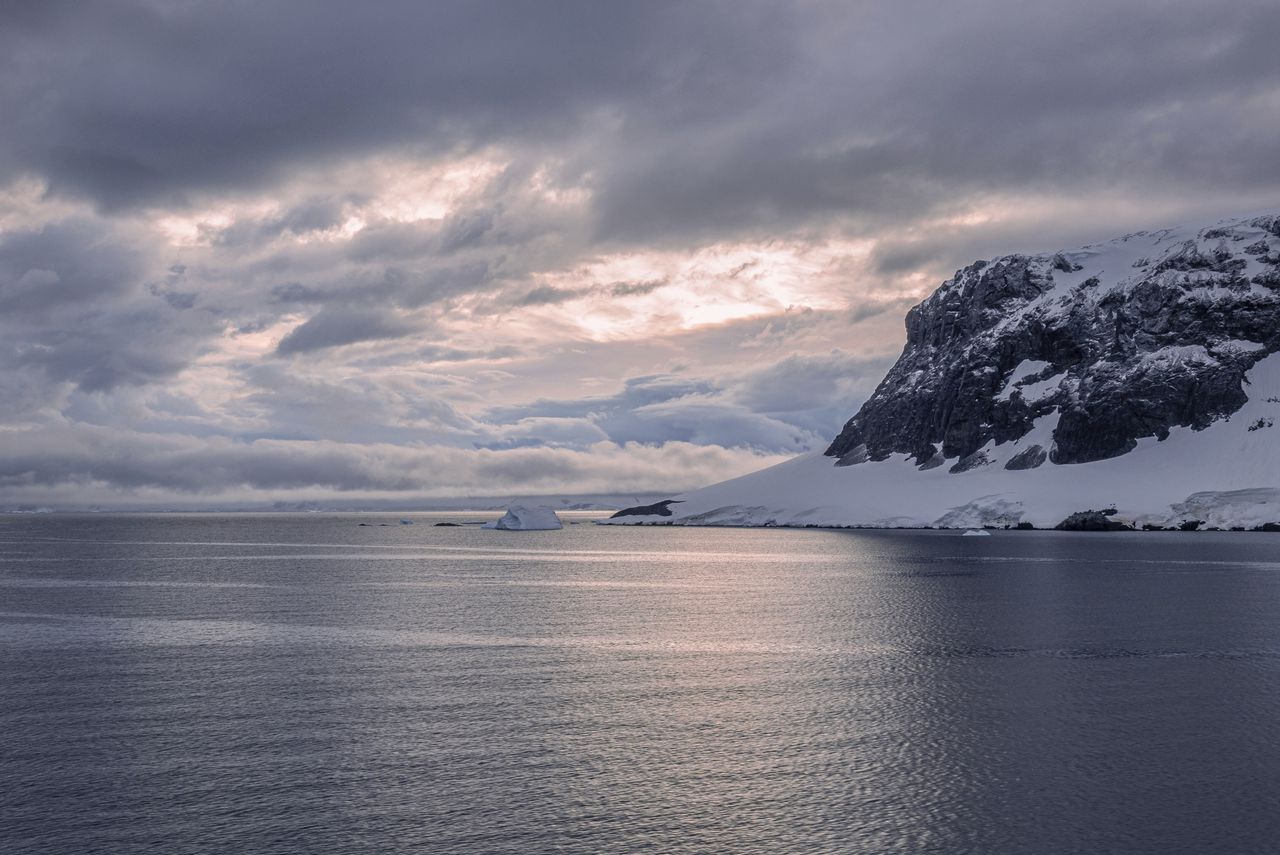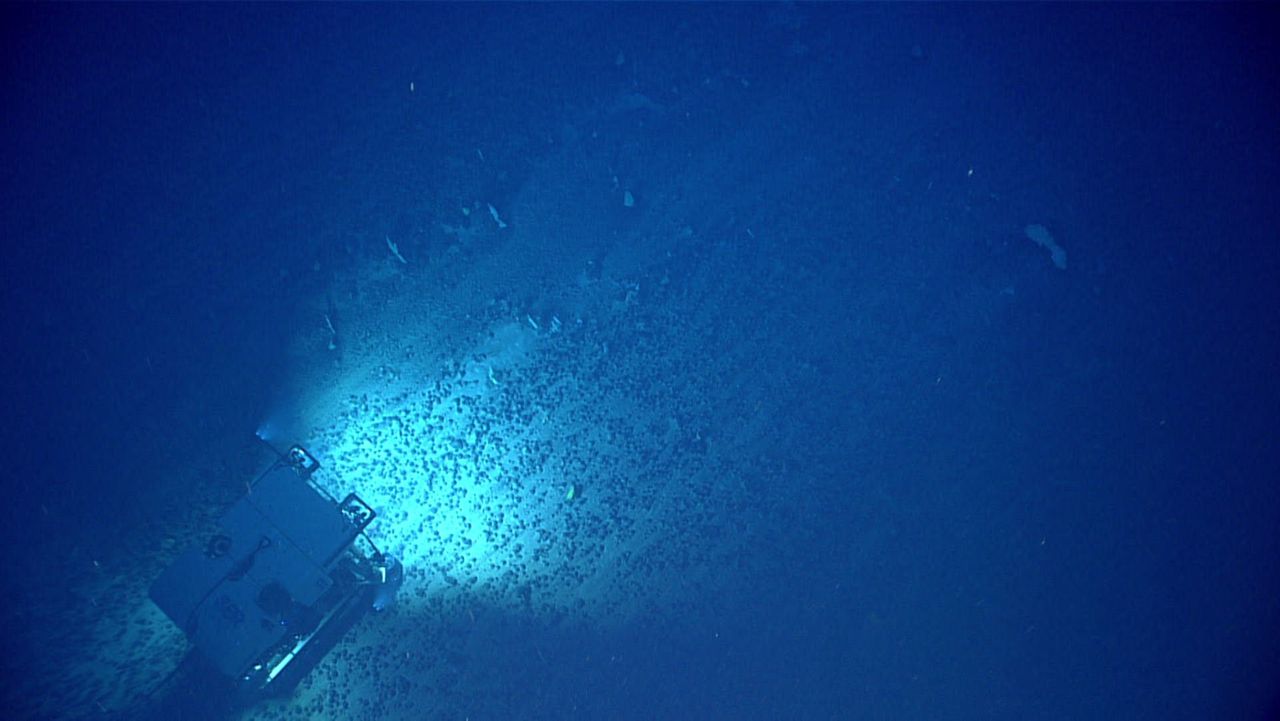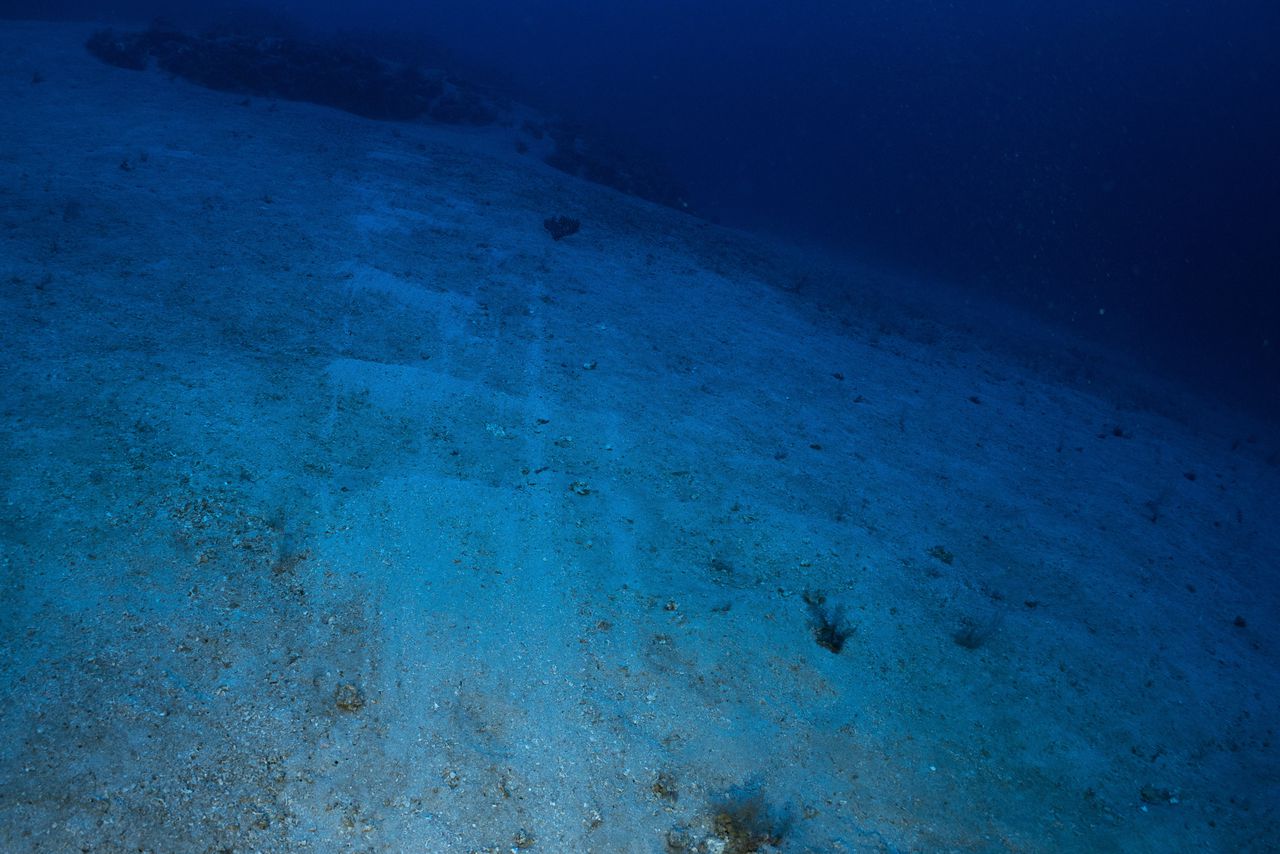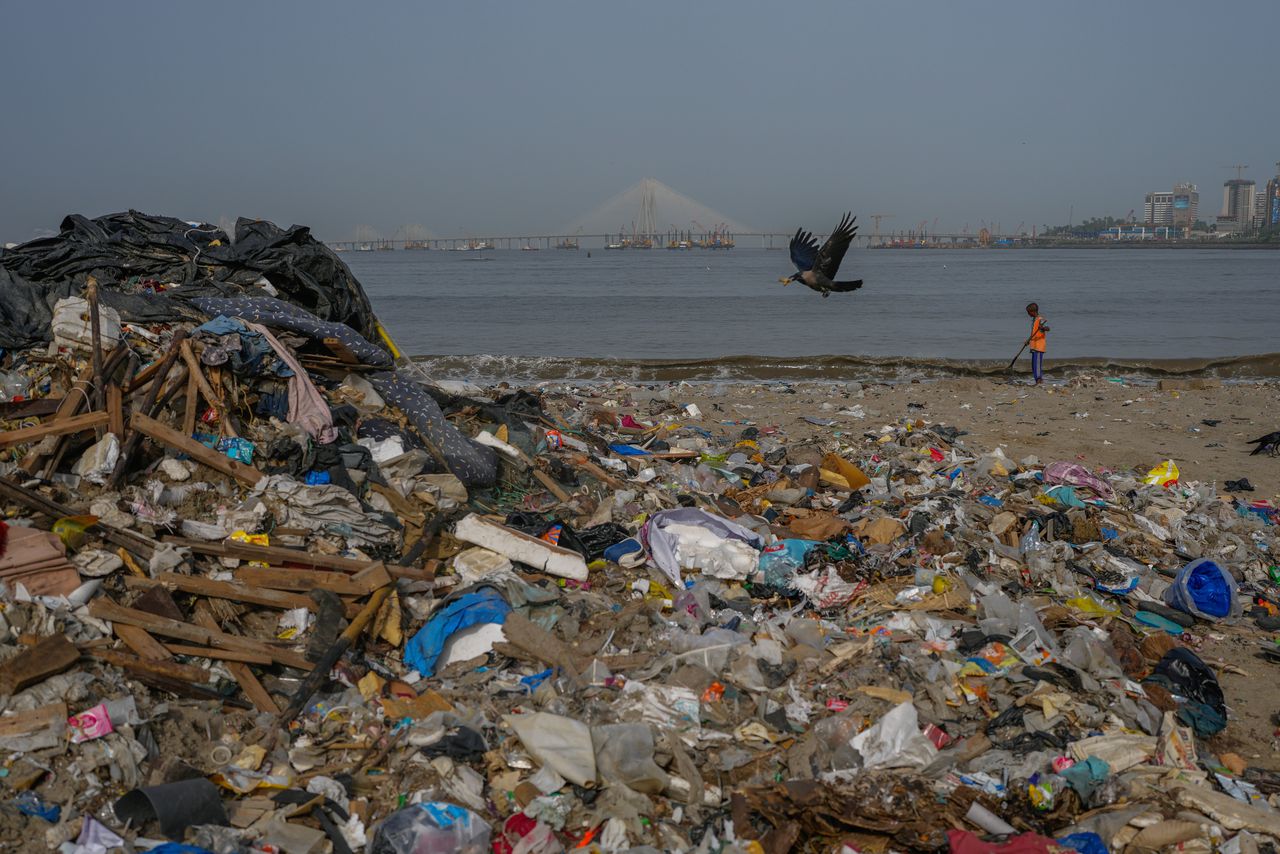Man owes a lot to the ocean, but what can people do for the ocean?

Everything on the ocean is great. He covers around 70 percent of the earth’s surface and records more than a quarter of all carbon emissions, including with his miniscule plants and bacteria. The ocean receives around 90 percent of the extra heat that cause people with greenhouse gas emissions. The forests of the Amazon are often called ‘the lungs of the world’, but that is not justified. That honor comes the ocean. He supplies half of all oxygen on earth.
In addition, the ocean has an enormous economic significance. UNCTAD, the UN organization for trade and development, calculated a few years ago that the industry-related industry represents an annual value of More than $ 2,500 billion. More than three billion people are dependent on the ocean for the majority of their food supply.
That is why it seems very obvious to be careful with the ocean. But that is disappointing. In a memorandum from the United Nations In preparation for UNOC-3, the Pacific Oceans conference that is being held this week in Nice, southern France, a list is given of the many threats. The water acidifies due to the increasing concentration of carbon dioxide. Every year more than 11 million tons of plastic is dumped in the ocean, which is almost two garbage trucks full of plastic waste per minute. There are no fewer than 13,000 fish species on the red list of endangered animals. And more and more countries are dropping their eye on the raw materials on the ocean floor – even though it is still totally unclear what the consequences of deep sea mine construction mean for the ecosystem.
In addition, the part of the ocean that belongs to no one, the so -called high seas, is legally poorly protected. It is about 61 percent of the ocean, around 43 percent of the earth’s surface. The ocean treaty that was concluded in 2023, in which agreements have been recorded on the protection of these international waters, will only take effect if at least sixty countries have ratified it – At the time of writing, there are 31. For President Emmanuel Macron, bringing in sufficient ratifications is an important goal of the conference.
In addition to support from enough countries, this protection also requires a lot of extra money. At the moment it is missing. Scientists calculated that approximately in 2020 $ 170 billion required is to keep the ocean healthy. For example, to monitor for illegal fishing. Last year was by countries just over 11 billion promised.
And so threatens from the fourteenth sustainable development goalthat is about ‘life under water’, not to end up. Most funds for the seventeen goals are struggling with deficits, but with none of them they are as large as for goal 14. While money for the oceans According to Niki Natarajan From ‘Impact Investor’ Phenix Capital can very well contribute to other sustainable goals, such as eliminating hunger (Doel 2) and preventing climate change (Doel 13).
But apart from money, the political will in particular seems to be missing to work together internationally. US President Donald Trump has now decided not to care about multilateral agreements. In his eyes, the ocean is a reservoir of critical raw materials that the US desperately needs for their national security and economy. Why would you leave them there?
Enough to discuss at the Conference in Nice. These are four striking themes.
1Protected areas
For more than twenty years, a treaty has been negotiated that has to protect the oceans before in 2023 in New York An agreement was reached. Laura Meller from environmental organization Greenpeace at the time called it « a sign that in a distributed world the protection of nature and people can triumph over geopolitics. »
Whether Meller would still say that today is the question. The most important agreement in the agreement is the protection of 30 percent of the international waters that no country has control over in 2030 – Now that is less than 1 percent. But nothing has ended up yet. The areas that should receive a protected status are not yet recommended. And there are no sanctions or other measures against countries that do not adhere to it.
Last week scientists argued in an analysis in the magazine Nature For more drastic measures. Only a complete protection of all international waters – no form of fishing or extraction of raw materials – can prevent irreparable damage to biodiversity, helping to stabilize the climate and contribute to international justice (because only rich countries have financial resources and technology to explore those areas).
The scientists realize that their plea is not very promising. But once it succeeded, with the protection of Antarctica.
2Deep sea mine

All decisions that are made in Nice must be scientifically substantiated. That said French President Emmanuel Macron In March on SOS Oceans, a meeting in Paris in preparation for the conference in Nice. He expressed criticism of the US who have restricted almost all financing of environmental research and expressed the hope that Nice would confirm the « dedication to scientific work ».
Macron explicitly referred to deep sea mine construction, many scientists say that it entails great risks for unknown and therefore vulnerable ecosystems deep in the ocean. He argues for a ban. Others want a moratorium to use a moratorium on the basis of the precautionary principle that the United Nations applies in many environmental issues that the risks are limited.
With deep sea mine construction, so -called manganese tubers can be won contain crucial raw materials for the energy transitionapart from manganese also cobalt, nickel and copper. Different countriesranging from China and Russia to South Korea, India and Norway, say they would like to start, but they do not yet have permission. They must get them from the International Sea Bodem Authority (ISA), based on the United Nations Sawlight Convention, which came into force in 1994.
So far, the Isa has only given a limited number of permits for exploration. The countries blame the organization for giving it to giving permission for commercial extraction. Certainly now that the US, who have not signed the Maritime Archtaga as one of the few countries, set on To start with deep sea mine construction.
3Soil -wing fishing

Scientists worldwide have been in discussion with each other since 2021 after one scientific publication in Nature. Co eventually comes by the seaside of the seabed2 In the atmosphere. This is because carbon that is stored for millennials in the remains of dead animals and plants comes loose from the soil and enter into the seawater reactions. The amount of CO2 which comes loose due to the heavy fishing nets, is comparable to the total emissions of shipping, investigated researchers Nature. A few years later it was calculated that more than half of the CO2 Released by tow nets within ten years from the water seeps into the air. But on the earlier calculations from 2021 came a lot of criticism. Carbon in those dead residues in the soil would not easily dissolve in the seawater and therefore swirling again. The impact on the climate would be heavily overestimated. What is certain is that tossing the soil has climate impact, and that Dee special ships to do that themselves are more co2 emit other fishing vessels: it costs more fuel to sail ahead if you drag a heavy just over the bottom behind you. Depending on the type of ship, soiling ships can use more than double fuel than other fishing vessels.
But even if the climate impact is not that bad, the damage of the bulldozeren across the bottom is immensely. Almost everything they encounter on the way catch the tow nets, which leads to much damage to ecosystems. There are already techniques for giving sea turtles, which are threatened worldwide, with special hatches an exit. That will probably also be discussed at the top.
Some parties, such as the WWF, argue for a gradual but ultimately fully ban on soil -making fishing. « With sufficient time for fishermen to switch to other techniques, » says Nathalie Houtman, researcher at the World Wildlife Fund (WWF). They want, just like written in an agreement from the World Trade Organization, that subsidies on harmful fishing techniques stop. Countries still have to put their signature under the agreement. Houtman: « Those subsidies are often in the form of compensations for the higher fuel costs for fishermen, caused by the heavy towing. »
This theme also shows the socio-economic inequality in that giant ocean. If fishing is fished in one area with gigantic towing nets through a country that can pay for the required ships, there is less left in another for countries that do not have such ships. According to the WWF, 37.7 percent of the commercial fish stocks are overfished.
4Plastic pollution

Plastic will also be an important theme during the Oceantop. Even since 2022, countries have been trying to do this make agreementsamong other things, to control the amount of plastic that ends up in the ocean. Last December, negotiations about this in South Korea did not end up; An agreement on the reduction of plastic production did not come (for the time being). Oil-producing countries such as Saudi Arabia were against. Negotiations will be resumed next August.
Plastic pollution has so far a theme that is particularly talked about, but that does not happen much in terms of international agreements. In the meantime, more and more plastic ends up in the ocean. Plastic where animals stitches, or that ends up high in the food chain in the form of microplastics, ultimately also in people.
In addition to the ocean as a vulnerable being that must protect countries against exhaustion and pollution, the ocean on the top will also be considered as powerful machine that offers protection against (the consequences of) climate warming. “Zeegras takes three to five times as much CO2 On as a piece of forest on land of comparable size, « says Houtman. » And seagrasses can protect countries against the effects of extreme storms by combating Kusterosia. » This should therefore be the most important conclusion of the conference: the health of the ocean also determines the health of the entire planet.

/s3/static.nrc.nl/images/gn4/stripped/data133399241-6ad92c.jpg|https://images.nrc.nl/ncsa3XBKuETlGYg_Wlr8cfgTTw0=/1920x/filters:no_upscale()/s3/static.nrc.nl/images/gn4/stripped/data133399241-6ad92c.jpg|https://images.nrc.nl/W4xDTlHc4KrgbA-HSnxicjrFiok=/5760x/filters:no_upscale()/s3/static.nrc.nl/images/gn4/stripped/data133399241-6ad92c.jpg)
/s3/static.nrc.nl/images/gn4/stripped/data133397414-025eb4.jpg|https://images.nrc.nl/JsdtEUV_tJ0-3GGTbIr3__hsEqU=/1920x/filters:no_upscale()/s3/static.nrc.nl/images/gn4/stripped/data133397414-025eb4.jpg|https://images.nrc.nl/CXU-MLAgsSWg4TuSisudmDxT7ec=/5760x/filters:no_upscale()/s3/static.nrc.nl/images/gn4/stripped/data133397414-025eb4.jpg)
/s3/static.nrc.nl/images/gn4/data133399084-119243.jpg)



